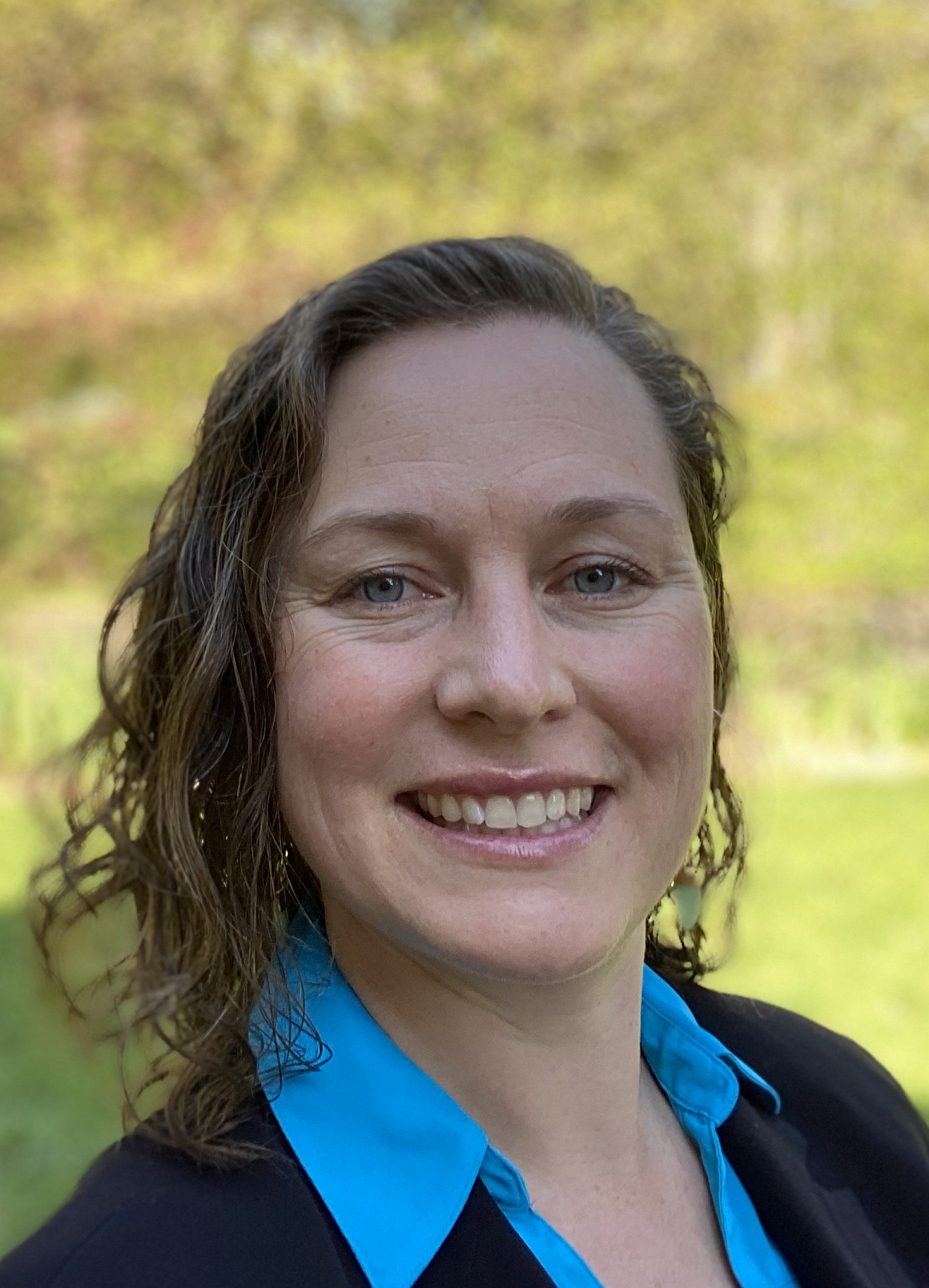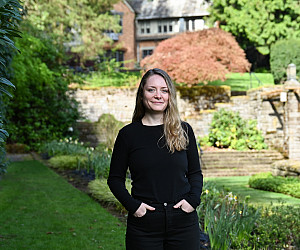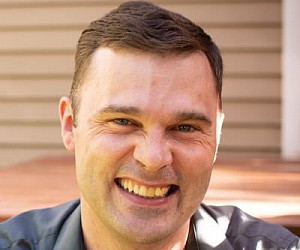main content Get to Know Associate Dean of Equity and Inclusion and Title IX Coordinator Casey Bieberich

Casey Bieberich joined Lewis & Clark last month as the new associate dean of Equity and Inclusion and Title IX coordinator. The search for the position began fall semester with the announcement that the office of Equity and Inclusion had changed its name. Get to know Casey in the following Q&A, and feel free to get in touch with her directly through email at bieberich@lclark.edu.
Please tell us a bit about your background and how it shaped your path.
I’ve taught self-defense and civic education, worked with farmworker unions on wage claims, filed U-Visa and VAWA claims for immigrant survivors of intimate partner violence, investigated police misconduct, helped students with Title IX accommodations, filed restraining orders and vulnerable adult protective orders, investigated elder abuse, testified in court, written findings on harassment and sexual assault cases, organized for prevention of child sexual exploitation, and both researched and personally received accounts of torture, abuse, and exploitation. I have no qualms in saying that humans are capable of the very worst possible harm to the most vulnerable. I simultaneously believe in directly speaking to and seeing the humanity in every person on every side of every action. I believe in learning, healing, and redemption.
I’ve lived and learned in Boston, Los Angeles, Kuala Lumpur (Malaysia), Coimbra (Portugal), San Jose (Costa Rica), Santiago (Chile), and Portland. I know how much we are all shaped by culture, socialization, family, language, religion, race, gender, and socioeconomic status. The people I count as family have shaped my path by pushing and challenging me, and I will honestly tell you about the ways in which I have trespassed and caused harm in my life due to ignorance and shame. We all trespass, and I believe firmly that we can take full responsibility and grow from our history and mistakes.
What sparked your interest in working at Lewis & Clark?
I have extensive experience working on bias and equity issues for large organizations and governments. I am grateful for my time in those spaces, as they enabled me to finely tune my skills as an advocate, policy writer, legal analyst, investigator, and so on. It became clear to me, however, that I belong in a smaller environment, one that is striving to be on the forefront of this line of work. I hope to continue to find an investment in community and genuine engagement, which is what I have observed so far at Lewis & Clark.
I’ve had many experiences at Lewis & Clark over the years as a result of family members and close friends graduating from CAS and Counseling. I knew when I saw a chance to work here, I had to take it. That, and, it turns out my elementary school in Albany, Oregon was built in 1915 on the original land and site of the Albany Collegiate Institute, now known as Lewis & Clark College. So, as the universe would have it, I’m actually coming right back to where I started.
How will students find you?
Under the current circumstances, the best and fastest way to reach me is through email at bieberich@lclark.edu. I’m also available for video meetings and to arrange phone calls. I want students, faculty, and staff to know that we can discuss scenarios through a hypothetical, as well as consult on how to handle a scenario where the solution may be complex and not immediately obvious. My answer to anything I do not yet know will be, “I will find out.”
What do you think is most important that we get right about equitable learning?
Equitable learning isn’t a one time policy change. It has to be an ongoing reflexive practice at all levels of our institution. Racism fundamentally impacts the way we see the world. Our distorted vision means folks with access and privilege should not be leading as experts, but using their access to make space for and follow those who have been marginalized in higher education. This also includes creating and enthusiastically sustaining support systems within our school, as well as partnering with outside agencies to ensure students, staff, and faculty who come from under-represented communities aren’t isolated and/or forced out of our community. It means learning from lived experiences, and both acknowledging and compensating lived expertise.
As our Title IX Coordinator, what do you bring to this position? What kind of education needs to still happen around Title IX on a college campus?
I would like to first reframe this title. I have been asked multiple times how I will balance Title IX duties with Equity and Inclusion work. Harm caused to a member of our community should concern our whole community, and we should be able to count on a process that asks what is needed to acknowledge and repair harm. This is true whether the harm is gender-based, or stems from any implicit or structural bias. I will bring the ability to evaluate, track and maintain legal compliance, as more and more demands are made on colleges. My focus will remain on access to education, which is the overriding principle of education amendments to this country’s civil rights act, including Title IX.
I will also work to support our confidential advocates, counselors, student support staff, and campus living staff as they bring compassion, great listening, and problem-solving expertise to inequities in access and incidents of harm. I appreciate everyone I have already met, who clearly demonstrate their genuine care for students. I look forward to further exploring and developing our ability to recognize and respond to ruptures in the community from a philosophy of care.
Civil rights legislation exists to force oppressive systems - and those who uphold them - to address discrimination. Even complete elimination of discrimination and harassment, however, would not equate to an inclusive and equitable community. I look forward to working with staff and faculty on prevention and response, but also on the community-building that is required to welcome and include every person. As a sourdough bread-baker and veggie gardener, I believe in the symbolic, literal, spiritual, and very human act of breaking bread together. My utopia includes listening and working through every problem at a trusted kitchen table, where justice work begins with every person fully nourished.
In your new position, what would you say matters most to you? What is your first priority?
My first priority is ensuring we have policy and procedures in place that are consistent, transparent, and do not adversely impact under-represented students.
What’s the first thing you are going to do when the COVID-19 quarantine ends?
We are going to spend quality time with friends and family, and my kid is going to play with other kids again. We made it back to Portland, after three years away, just as the stay-home order was put in place. Many, many, long hugs are overdue.
email source@lclark.edu
More Stories

Explore L&C’s New Benefits and Total Rewards Website!
The Office of Human Resources is excited to share that your employee benefits information has a brand-new home! The Benefits and Total Rewards website is now live and is designed to give you easier access to all the information and resources related to your benefits. The new website was designed and implemented by Benefits and Leaves Specialist Isi Avidan—HR’s newest employee.

Requesting your Thoughts on Dialogue at L&C
Please take 10 minutes to complete this survey to share your thoughts about dialogue at L&C!

President Holmes-Sullivan Joins Hundreds of College Presidents Opposing Undue Government Interference in Higher Ed
President Robin Holmes-Sullivan is among more than 300 U.S. college presidents to sign a public statement opposing federal interference that undermines our nation’s higher education institutions.

Andrew Saultz Selected Dean of the Graduate School
Andrew Saultz, an alumnus of L&C’s Master of Arts in Teaching program, begins his tenure on August 4.